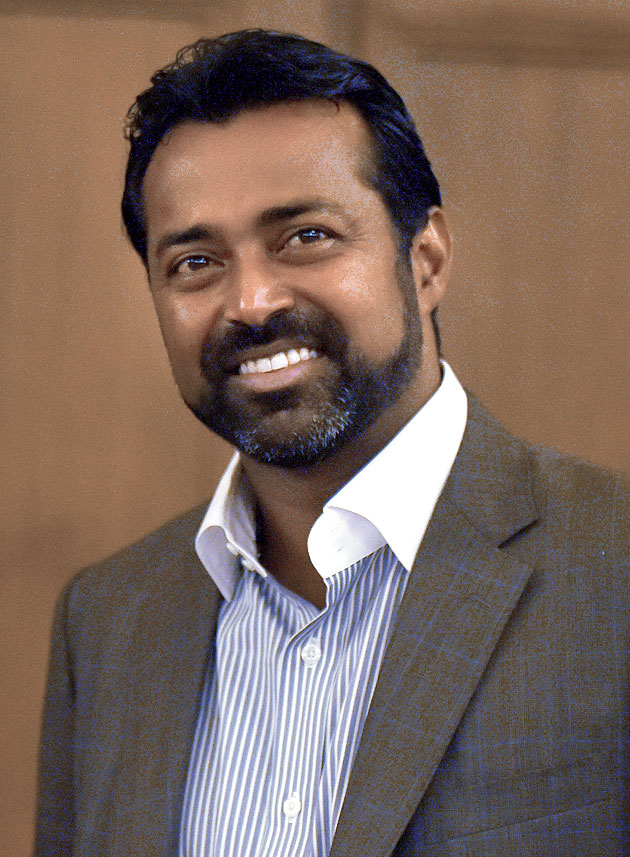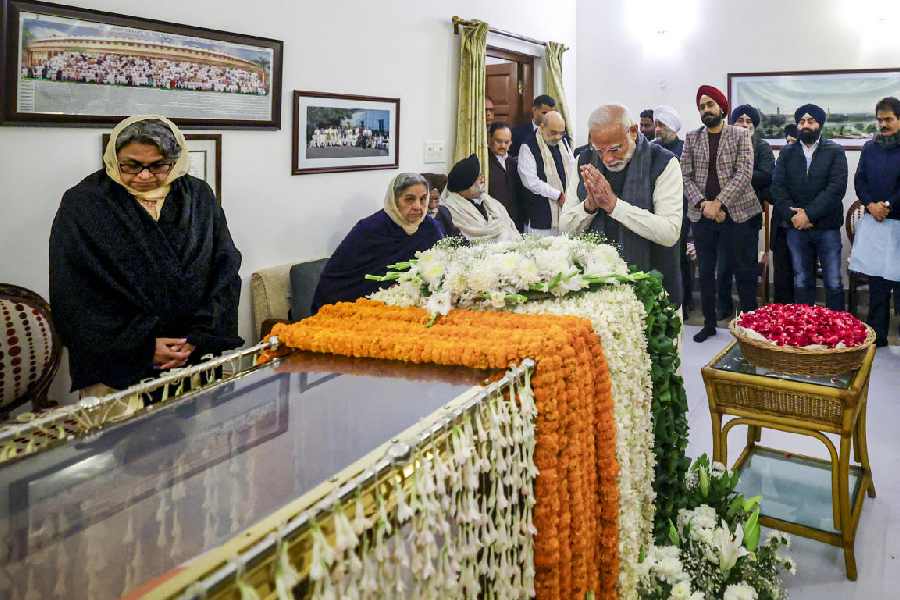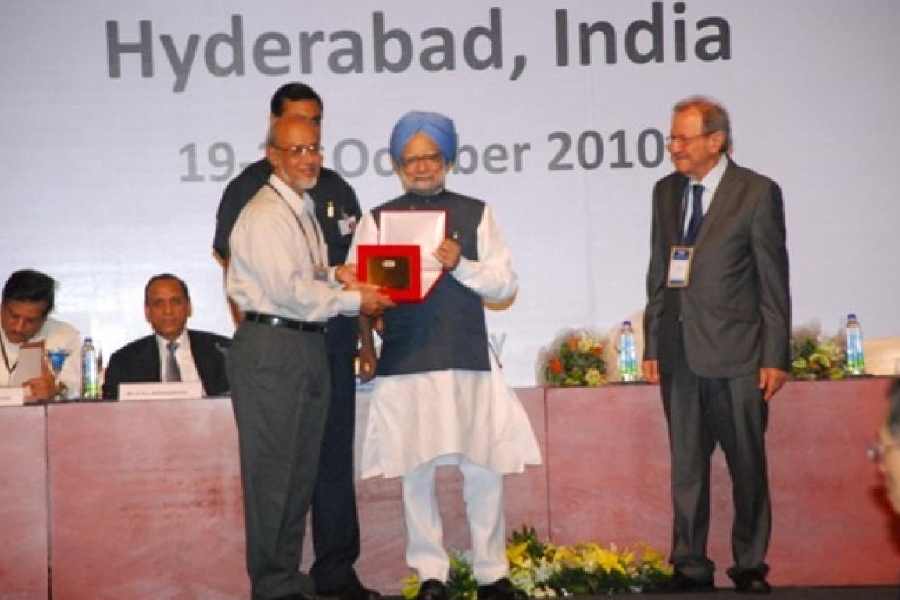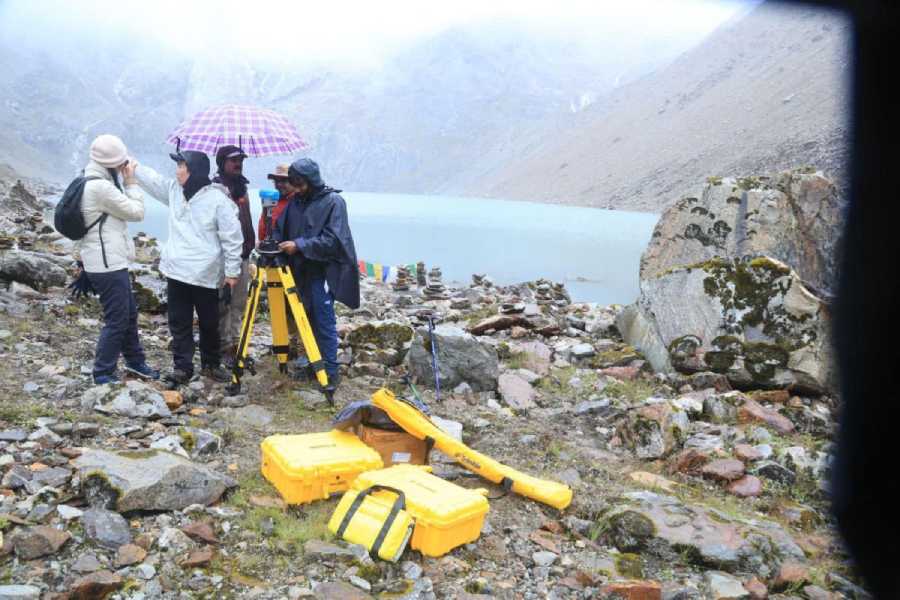Leander Paes is synonymous with longevity in the world of tennis. With 18 Grand Slam titles, an Olympic bronze medal and numerous memorable Davis Cup moments - including the record for the highest number of doubles wins - under his belt, Paes is ready to reinvent himself in the times of Covid-19.
He picked up a racket at the age of five and used to accompany his father to CC&FC and Dalhousie Institute. He started his formal training at South Club under coach Anwar Ali, before going off to Chennai to enrol at the Britannia Amritraj Tennis Academy. He was just 12 at the time. In 1991, as an 18-year-old, he turned pro.
In a freewheeling chat with The Telegraph from his residence in Mumbai, Paes shared his plans for the future and nuggets from his inspiring career.
Excerpts:
The Telegraph: 2020 was supposed to be your farewell year on the Tour. But the coronavirus pandemic has put a spanner in all that. Do you have any plans to extend "One Last Roar" to the next year?
Leander Paes: This was supposed to be my "One Last Roar" season. I got fantastic response from fans at the Australian Open, then in Pune, Bangalore and Dubai. I even reached the final in Bangalore, which was supposed to be my last tournament in India. I was then chosen for the Davis Cup and played against Pakistan and Croatia extending my doubles record.
At the moment I am not making any decision. I will keep my options open. I think we are still a long way for global tennis to restart. The decision on whether I will extend "One Last Roar" to 2021 or not will be taken closer towards the end of the year.
The reason I wanted to retire this year was because I was very, very tired last September. I was very tired of the constant travel, of the 30 years of hard work. I did not take a proper break ever since 2003 (diagnosed with neurocysticercosis, a parasitic brain infection).
But while the Covid-19 lockdown has been very hard on most people, including myself, it has also given me a breather, a chance of finding a vocation away from tennis. I have been able to recharge and rejuvenate my passion for tennis.
Will you take part in the US Open? What are your plans for the rest of 2020?
I am done as far as the 2020 season is concerned. I am not playing any tournament till the world is safer. When the coronavirus scare started, I was considering going off to the US to train, just in case the Tour would go on. But Dada (father, Dr Vece Paes) told me not to. And I took his advice. This is a rogue virus. You just don't know what you are up against.
With the Olympics shifted to 2021, would you still want to be a part of the Indian team?
I am not thinking of it yet. Until the pro calendar is confirmed and one has more clarity regarding Tokyo, there is no point in even thinking about it. The need of the hour is to take responsibility and keep our close ones safe.
An athletic person like you... how are you dealing with having to spend time at home because of the pandemic?
I am actually enjoying my time away from the tennis circuit. I now have a chance to recharge my batteries. In 95 days, I have done 19 webinars talking about stress, pressure, health, financial stability. I try to share the tricks I have learnt over the past 30 years. I am trying to share my experience to make another individual the best he/she can possibly be. We don't give much importance to emotional and mental health. We don't address them. But my family excels in that field. That's why we have achieved what we have in our individual professions. We enhance each other continuously in mental health.
How safe will the world of tennis be now?
Tennis naturally has social distancing, like golf, cycling, badminton among others. But the norms have to be followed very strictly. You have seen what happened at Novak's (Djokovic) tournament. (Djokovic, Borna Coric, Grigor Dimitrov and Viktor Troicki tested positive after playing at the world No. 1's Adria Tour exhibition tournament.) Though the ATP has issued dates of some tournaments, players are very concerned. My heart goes out to those who have contracted Covid-19. Tennis is a global sport. There will be people travelling from all over the world. That is tough to control. It is difficult to keep a safety net. Even in your own city, the key is to follow all safety protocols.
The pandemic among other problems have given rise to depression to many. What would be your way of helping them to counter it?
The pandemic has given rise to loneliness and depression. But human touch is not necessarily physical. It can come from understanding and acceptance of others. It is in giving unconditional friendship. That is the greatest human gift. Doctors do it through medicines, parents through their maternal/paternal instincts. I give through what I have learnt over 30 years of hard work and following my craft to the best of my ability. When I started as a young player in the '80s, I was pioneering through a very tough terrain on how to become a Grand Slam champion and how to win an Olympic medal. I can share lessons on how to have a better quality of life.
What are your plans post tennis?
My focus will be sports education. I want to reach every child in India, giving them a better quality of health, a sense of camaraderie and discipline. I want to teach them leadership and teamwork. Sport is the best vehicle for the community to nurture our children. Diabetes and obesity are big problems in India. Depression is huge. Sport is the perfect vehicle to build friendships, to take care of mental issues like depression and loneliness. You develop a sense of belonging and a sense of self worth. Covid-19 has forced me to reinvent myself.
The name Leander Paes brings to mind determination and longevity. What has kept you motivated for so long?
It is my passion for tennis, the years of hard work that I have put in. To stay motivated you need to be willing to go beyond the boundaries to achieve what has not been achieved before. My hard work, my self-belief gives me confidence. But that has to be earned. When I step on to a tennis court or start any venture, I make sure I work hard, do my home work. And then I succeed.
Your Olympic medal or your Grand Slam titles... which is more special to you?
(Laughing) All of them. Why should I have to choose?
Your toughest tournament?
The Atlanta Olympics. To be the captain of any Indian team is incredibly difficult. The pressure is tremendous. I lost the semi-final to Andre Agassi. I may have not lost had I not injured my wrist. I had a chance against him. (The 22-year-old Leander went on to win the bronze medal, India's lone Olympic medal in tennis, defeating Brazil's Fernando Meligeni.) In sport you learn that opportunities don't come by very often, but when they do come, they change your life.
Do you think the All India Tennis Association (AITA) is doing enough for the sport in the country?
AITA does what it can. But can they do better? 100 per cent. It is about giving talented players the opportunity and an environment of doing the best they can. I am concerned about the base of tennis in India. How many kids are actually playing? For me, the strength of a pyramid is at its base - in how wide and strong that is. The AITA needs to focus on that.
How impressed are you with the present crop of Indian players?
I have tremendous respect for the young players. It takes tremendous effort to keep persevering in this sport, which can be very expensive and very tough. I know it all too well. In my career, I had slept in locker rooms too because I could not afford a decent hotel. Prajnesh Gunneswaran, Ramkumar Ramanathan, Rohan Bopanna, Sharan Divij, Saketh Myneni, Purav Raja, Vishnu Vardhan, Ankita Raina, the whole Fed Cup team... I can keep naming them.
How has the sporting scene changed in India?
Sport in India have grown so much from the time I started to play in the mid '80s. Look at the pro leagues. Cricket, kabaddi, badminton, table tennis, hockey - all have benefited. They have helped players earn more and also Indians have become aware of the world standard by playing along with top class foreigners. They now know what real competition is like in the world. It has given them the confidence to grow, to never be scared to grow. That is something my parents instilled in me - never be scared, never be scared to even fail, you can always try again.
You are now often seen playing golf. How serious are you about the sport?
I am playing a lot of golf and had scratch handicap at one point. Now it is about a solid six. It is a creative game and I get a lot of exercise. I take 18,500 steps over 18 holes. |But what I find very important is that I have the undivided |attention of my playing partner for hours, be it a friend or business colleague. You can talk ... not just business, but sharing happiness, building up friendships.The world needs good people now to do good work. I feel responsible to do good for the community, to make a difference, to bring happiness to people - to get people to be the best version of themselves.











